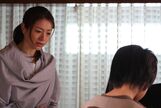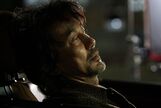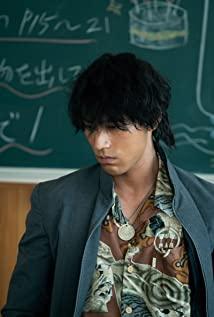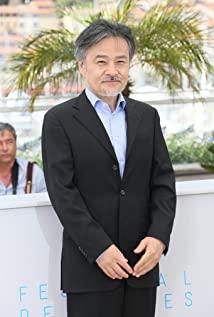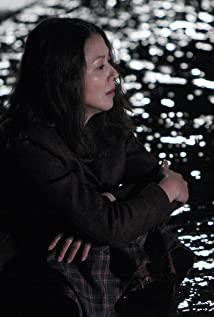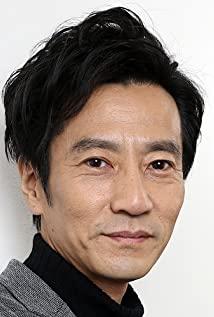From this film, it is easy to interpret the theme, and can also interpret many themes and subtitles, from communication and understanding, family relationship, parent-child relationship, to life, happiness, social problems, unemployment, economic crisis, Sino-US-Japan relations, etc., And so on.
What is commendable is that the director Kurosawa Kiyoshi managed such a grand and all-encompassing theme just right, with more flexibility, plumpness and not too much procrastination. This is because he applies grand themes to delicate narratives, and uses a family of four and four clues to develop his thinking about everything.
And everything, perhaps, can be attributed to a title, that is, the incomprehension of life. Even at the end of the film, life is still incomprehensible. Although a dramatic plot and a relieving ending have been added, it is still difficult to conceal the open-ended thinking that the director intends to leave the audience.
So here I just want to intercept one angle - dignity - to interpret this film.
What impressed me most was that in the movie, my mother (Kyoko Koizumi) put it bluntly that she already knew the fact that her husband was unemployed, and threw out a sentence with a little disdain: "If it's gone, it's gone, that bit of dignity." . .
Even living in a traditional patriarchal society like China, it is a little difficult to understand the social way and way of life that Japanese men support with this so-called "dignity" - unemployment is extremely dignified for them, not only absolutely impossible He told his wife and children that he chose to commit suicide in order to protect his lie that he was still very capable and valuable.
And their dignity even extends to every corner of life and family. In Japanese society, fathers are a collection of majesty and authority. For wives, they are always the most capable, and for children, they are always the only decision-makers. Therefore, in order to maintain dignity, the lack of real communication may be an important reason for the isolation and estrangement among many family members (for example, in the film, a family of four often sits together to eat together, but the relatively silent scenes are very depressing.
In my opinion, behind this nihilistic and confused "dignity" is actually a kind of inferiority . Inferiority caused by not being able to locate one's own worth.
Plot 1:
Sasaki, the head of the family, is the head of a large company. On the day the unemployment came, the minister asked him, "Do you think you can still bring any value to this company?" In fact, this was a challenge to his dignity, and he knew very well that under this new employment system , his ability could not bring any value to the company, he chose to resign. But in fact he still refused to admit this "worthless" fact.
Plot 2:
In order to maintain his sad "dignity", maintain the authority of the head of the family, and maintain the illusion that he is still very valuable and capable, Sasaki still goes out every morning dressed like a dog, pretending to go to work, but in fact Spend time outside, wait until the end of work, and then go home pretending to be okay. The same goes for Blackbeard, who is unemployed like him. He also adjusted the function of his mobile phone to ring five times an hour in order to create the illusion of "I am busy and have a lot of business". Ridiculous.
Plot 3:
Sasaki's road to re-employment is obviously "high or low". In the employment agency, he refused security, club experience, and other jobs that were detrimental to "face", but there were interview opportunities in large companies, and he could not be selected due to his limited ability. Here is another scene that challenges his dignity. The company HR asked him what his specialties were. Sasaki actually said, "Are you rap karaoke?" The speechless HR said, then you can sing it to me now, this is not you Specialty? This is clearly a mockery and mockery of him. . . Poor Sasaki picked up the pencil as a microphone and opened his mouth, I was embarrassed for him. .
Plot four:
The eldest son of the family chose to go to the United States to serve as a soldier, and the second son chose to learn the piano, which was unacceptable to Sasaki. He only allows his son to think and live according to his values, to walk the way he thinks he should, and not to rebel. This is the authority and dignity of a typical Japanese father. But that doesn't have to be frustrating. The eldest son asked him, "I don't need your protection. You said you protected us, so what do you do every day?" Sasaki was speechless. After the eldest son left, Sasaki found out that the second son was hiding his piano lessons from him. He became angry, punched and kicked the second son, and said something to his wife: "What I once said can't be taken back, it is related to The dignity of parents, Agui is just letting it go, which leads to failure, so for Kenji, even if he is forced to accept my values, you have to help me. If you don’t have dignity as
a parent, it’s over.” It’s ridiculous. The words stem from Sasaki's arrogance and low self-esteem. Due to low self-esteem, he is arrogant, refuses to listen to others, and asks his family to accept his set of values. Due to low self-esteem, the so-called "dignity" is distorted and communication is isolated with nihilistic "dignity". So tragedies abound.
Plot 5:
Sasaki, who was cornered by life, had to accept a job as a shopping mall cleaner. All the cleaners, including him, are a bunch of men who are unwilling and afraid to tear their "dignity" masks. They dress like dogs to go to work every day, put on the cleaner's uniform, and take off the uniform and suit in the afternoon. He went home in leather shoes and continued to act in front of his family. Because of their low self-esteem, dignity is their talisman.
Plot 6:
Sasaki, who was enlightened after the car accident, suddenly felt that this kind of empty dignity was a ridiculous thing (here the movie got rid of the realism of the first two-thirds, and it was a bit dramatic), and returned home wearing the uniform of the cleaner , the second son said: "Dad, your clothes look a bit strange." Then nothing happened, and the three continued to eat. Four months later, Sasaki is still continuing his work as a cleaner. The difference is that, from his serious eyes and the demeanor of kneeling and wiping the floor intently, he feels that he has re-examined his own value and let go of what he used to be clinging to. "dignity".
The same sentence echoed in my mind: "If it's gone, it's gone, that bit of dignity." . .
What is dignity? Inferiority and arrogance never won it, and for me, perhaps true dignity comes from the right identification of oneself and honest communication. Being particularly senior and having a particularly loud voice does not mean that you have more dignity than others. . This reminds me of Bo Yang's words and his book that has been scolded countless times by countless people.
In addition, in fact, from thoughtful movies, many interesting details can often be found. "Tokyo Sonata" is no exception. In the film, Sasaki and his wife both had dreams, and they were all nightmares, and then when the wife and the thief were at the beach, they said something: "If life so far has been a dream If you wake up suddenly, you are actually a completely different person, how nice would it be." . Later, when the wife comforted the thief who couldn't think of it, she said, "There is only one self in the world, isn't that the only thing we can believe in?" Later, the wife thought that there was a ship at sea and there was hope to escape from reality, but it turned out that it was own hallucinations. . . All these arrangements are not accidental or unintentional. Perhaps the director's good intentions are to say: even if life is a nightmare, no matter how much we hate the real self, hope and happiness still come from the real self Find on the body. . Hope for a miracle is vain. .
View more about Tokyo Sonata reviews




